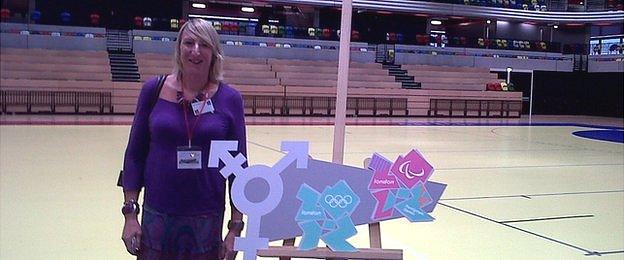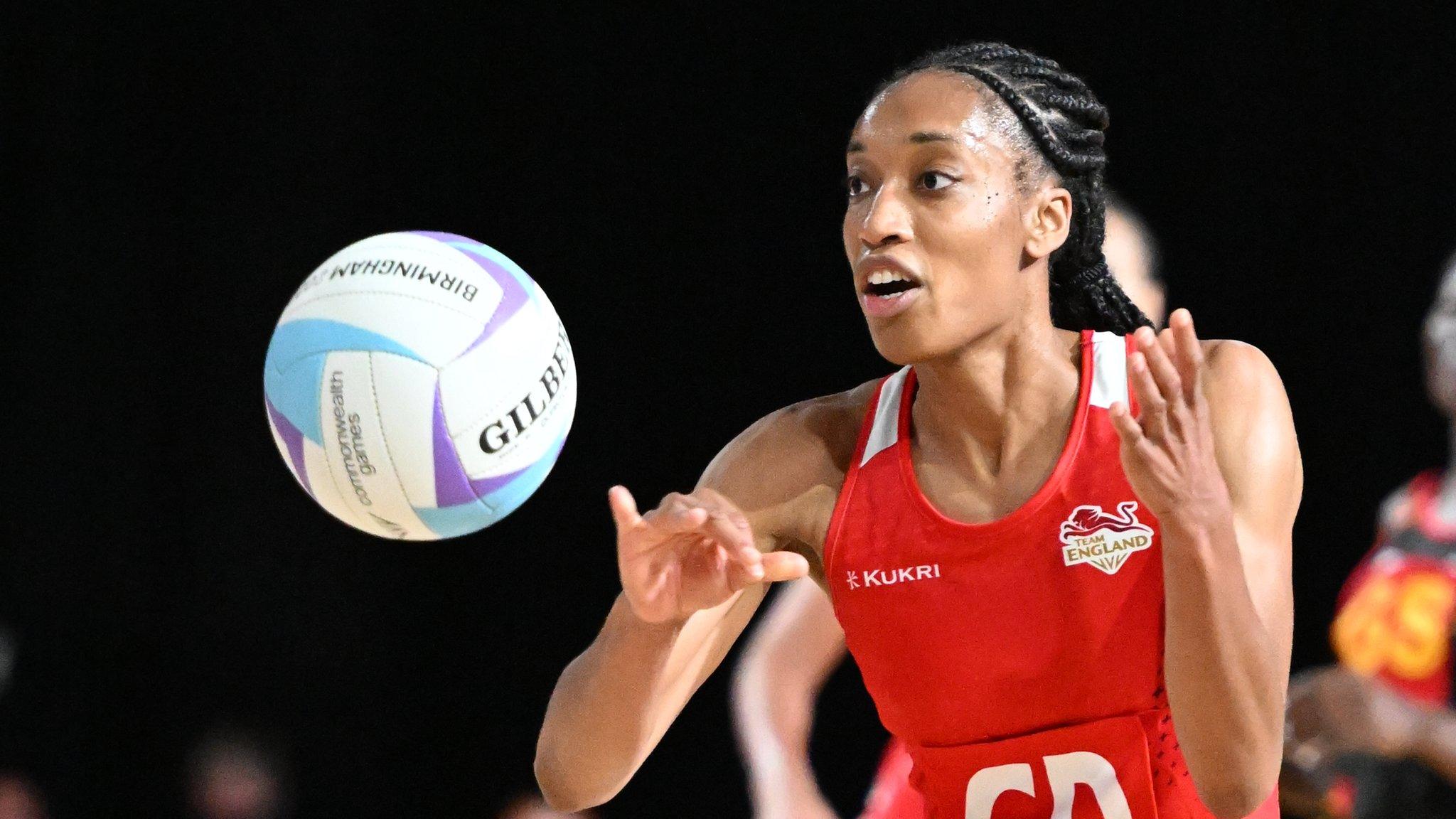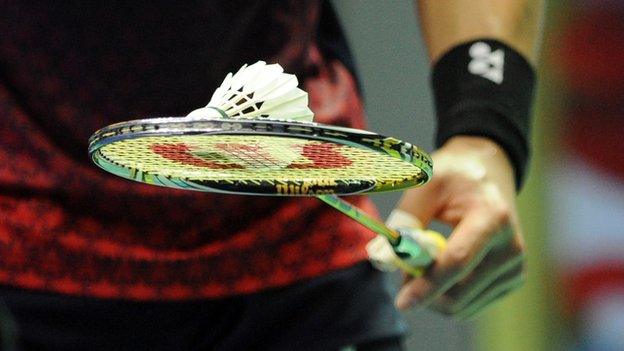Transsexual Delia Johnston - I hated sport before my sex change
- Published
Delia Johnston hated sport in her previous gender but now she plays netball and badminton regularly.
Recently, 1976 Olympic gold medallist Bruce Jenner said he is transgender and identifies as a woman. Here BBC Get Inspired look at the story of Delia Johnston, who had gender reassignment surgery in 2012.
When Delia Johnston turned up at a netball taster event,, external the coach quipped she must have been a great player at school because of her height.
In truth the 59-year-old had never played the game in her life, as Johnston was born male.
"I had to come up with some excuse," she told BBC Sport.
"After that first night I had to go and buy the complete idiot's guide to netball as I knew nothing about the game. But it's great fun now."
In 2012 Johnston had gender reassignment surgery to complete her transition from a male to a female and bring to an end decades of emotional struggles and the feeling of being trapped in the wrong body.
"Effectively I lived a lie all of my life and you have to deal with that," she said.
Johnston, from Milton Keynes, began her journey in 2010 and admits she has lost many friends along the way, but says she doesn't blame them because she is a totally different person.
As a man, she was successful in her work in the communications industry, but an introvert. Now she's a self-confessed lunatic.
"I'm a party animal and I enjoy life to the max and I love sport, whereas before I hated sport with a vengeance," she said.
Her love for sport was triggered by working for London 2012 organisers Locog before and during the Olympics and Paralympics, looking after accreditation for athletes and officials.

Delia in September 2011, pre-surgery: 'It's an horrendous process, but you have to do it."
This also coincided with her transition period before surgery, when she had to live as a woman.
"It's a tough process, you have to do a two-year Real Life Experience test, where, from day one you are effectively now your acquired gender," she said.
"You have to go out in the normal world, you have to go to the supermarket, and do normal things, but you have no hormonal assistance at all and you are very, very vulnerable.
Delia Johnston |
|---|
"You are about to potentially walk away from everything you know, everything you value, everything you love, potentially lose the lot. For what?" |
"People lose their jobs, people lose everything. It's an horrendous process, but you have to do it.
"I knew if I couldn't pull it off working in the middle of London 2012, then I'd have no chance."
Johnston emerged from the Games not only with greater confidence but also a passion for sport because she discovered that it allows her to be who she wants to be.
She now plays badminton and netball regularly, but says many transsexuals are not so lucky and simple tasks like going to a gym can be traumatic.
Terminology | |
|---|---|
Transsexual people identify with the opposite gender to their sex assigned at birth and seek to live permanently in this gender. | Transgender is an umbrella term for people whose gender identity and/or expression differs from their sex assigned at birth. |
Transitioning describes someone changing from one gender to another. This can involve various treatments including: hormone therapy, surgery and hair removal. | People who have transitioned do not necessarily identify as trans any longer; they may identify as simply a man or a woman. |
"For the vast majority of people, yes, it's bedsit life. It's nothing near the life I lead," she said.
"Changing rooms are the most scary thing for a lot of people if you don't like your body and then if you are trans prior to surgery or post-surgery, it's really difficult.
"I remember going swimming for the first time a few years ago. Yes, I used to go swimming in my previous gender, now I was going to walk into a women's changing room.
"I had no idea what was behind the door. I had not a clue. Was it a cubicle? Was it communal changing rooms? Yet I couldn't walk in looking lost and bewildered, so you had to deal with all of that.
"A lot of people go to a lot of effort to either not go to the changing room or go to the sport pre-changed and go home afterwards.
"Many people find a way around it if they can, but it's sometimes deemed as a problem too far to go."

Delia had to live two years as a woman before undergoing surgery
As well as the social situations, transsexuals also have to adapt to huge physical changes as they begin gender reassignment and get on the hormonal path.
"Once you start, within a few weeks, months, whether its optimism or not, you start noticing your body changing," she explained.
"Bits grow, some bits cease to function so well, but the biggest difference over time is your muscle mass and body shape changes, that's the big change and that's so subtle."
The scariest part of the whole process? The fear of who she was going to become.
"I've known all of my life I wanted to do this but was it just a massive mistake?" she said.
"You pay a price, people around you pay a price, it's not easy. But that's a raw nerve."
But Johnston remains positive and wants to act as a role model for others who go through the same process.
She works closely with sport governing bodies in the UK to try to encourage more trans people to participate in sport.

Delia started to play netball in September 2014 and learnt her height is an advantage on court
"The ultimate utopia is that someone who is looking to change gender can do sport, be it competition sport or just swimming or doing some work at the local gym," she added.
"Because at the moment to change gender and go down the surgery route, you have to be fit and healthy, but how do you do that without getting involved in some sport or leisure activity in some way?
"You need to do it, you need to get out there. I'm not a perfect role model but I'm out there, I love sport and I just wish I did it years ago."
- Published26 July 2023

- Published27 March 2018

- Published13 August 2018
